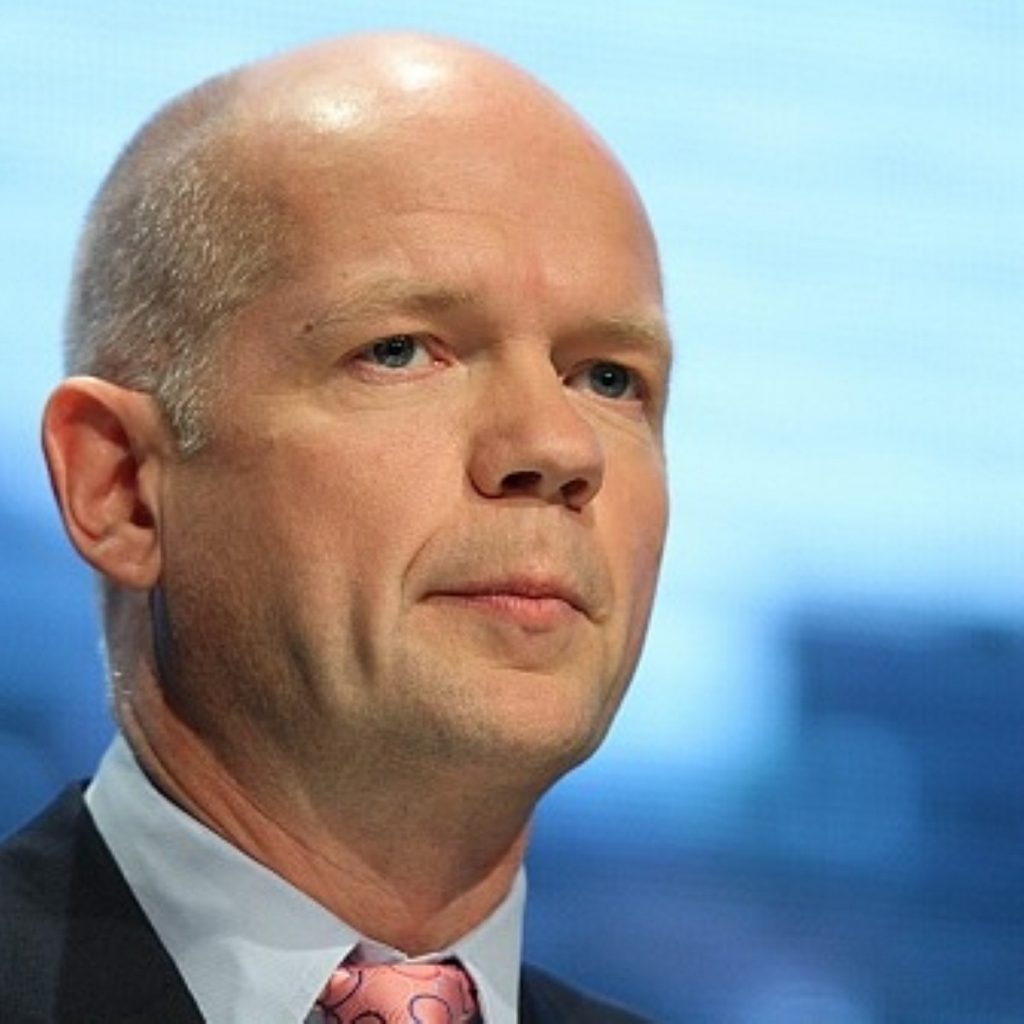Farce in Libya: Hague attacked for ‘bungled’ mission
By Alex Stevenson and Ian Dunt
William Hague has been attacked for authorising a “bungled” mission which saw a covert SAS mission into rebel-held eastern Libya end in humiliating circumstances.
The foreign secretary was met with widespread scepticism in the Commons this afternoon after he insisted the helicopter was carrying a “diplomatic” mission which suffered from a “serious misunderstanding”.
But Sir Menzies Campbell, former leader of the Liberal Democrats, embarrassed Mr Hague with a vocal attack on the operation, branding it “ill conceived, poorly planned and embarrassingly executed”.


He added: “What is the secretary of state going to do to restore the reputation of the United Kingdom in the Middle East?”
Shadow foreign secretary Douglas Alexander delivered a combative performance which raised questions about the UK government’s entire approach to the crisis in Libya.
“I speak for many when I say the news on Sunday was seen as just the latest setback for the UK and raises serious questions about ministers’ grip on unfolding events in Libya.”
Highlighting the strange suggestion that a diplomatic mission would arrive in a helicopter, Mr Alexander said: “The British public are entitled to wonder whether, if some new neighbours moved into the foreign secretary’s street, he would introduce himself by ringing the doorbell or instead choose to climb over the fence in the middle of the night.”
Mr Alexander highlighted a litany of mistakes over the crisis in Libya, including Mr Hague’s suggestion that Colonel Gaddafi had fled to Venezuela, the slow response toward charter flights and Cobra and the confusion over a no-fly zone policy which ran through last week.
“We have led the way at the UN Security Council and drafted the resolution,” Mr Hague responded.
“We led the way at the UN human rights council. We are at the forefront of the assets freeze. The impact of British foreign policy on this situation is extremely powerful and that is how it will remain.”
Six or seven SAS soldiers, who were reportedly carrying passports from four different countries as well as guns and ammunition, were rounded up and claimed they were unarmed over the weekend.
They were then searched by rebel soldiers after their helicopter landed and promptly detained. The soldiers were accompanied by a mid-ranking MI6 officer, according to reports, when they were put down near the town of Khandra.
Britain’s ambassador to Libya, Richard Northern, was then forced to plead for the troops to be freed. His attempts to secure their release were broadcast on Libyan state television, in a further blow to British prestige.
“We sent ahead… a small group to find if there was a hotel, if everything was working, if there was somewhere we could stay and work,” Mr Northern told rebel officials.
“I understand there has been a misunderstanding and they have been picked up by the security group who are concerned about their presence and who they are. I hope to ask Mr Jalil if he might be able to intervene to help clear up this misunderstanding.”
The rebel spokesman replied: “They made a big mistake coming with a helicopter, I think, in an open area. So the people, they noticed that there are some people coming down. The investigation is now going on.”
The incident is unlikely to help Britain establish strong diplomatic contacts with Libyan rebel forces as their fight against Muammar Gaddafi’s forces continues.
Benghazi officials include a mix of former Gaddafi regime ministers who have defected and tribal leaders, who have united to form a ‘national council’.
They are in touch with community leaders in other parts of the country, but are not yet calling themselves a government-in-waiting.
Former Jordanian foreign minister Abdelilah Al-Khatib has been appointed the UN’s special envoy to Libya in a bid to make contact with Col Gaddafi to address the humanitarian situation.
He has had some initial success. Col Gaddafi has permitted a UN team into the country which will travel to Tripoli.
The situation in Misrata, an isolated rebel-held town surrounded by Gaddafi loyalists, is a major area of concern, however.
And the latest counter-offensive by Col Gaddafi’s forces has demonstrated the limitations of the rebels’ military capabilities. Bin Jawad, a coastal town to the west of oil port Ras Lanuf, is among the latest settlements to change hands, according to reports.
David Cameron outlined the ‘four pillar’ principles of Britain’s approach to Libya in his speech to the Conservative party spring forum in Cardiff yesterday.
“We will continue to intensify pressure on that regime,” he said.
“We will continue to state clearly that international justice has a long reach and a long memory, and those who commit crimes against humanity will not go unpunished.
“We will continue to provide humanitarian assistance to those affected by this crisis, and continue to demand access for aid agencies to reach those in need.
“And we will continue to plan, with our allies, for every eventuality.
“But let me repeat one thing, it is time for Colonel Gaddafi to go.”









